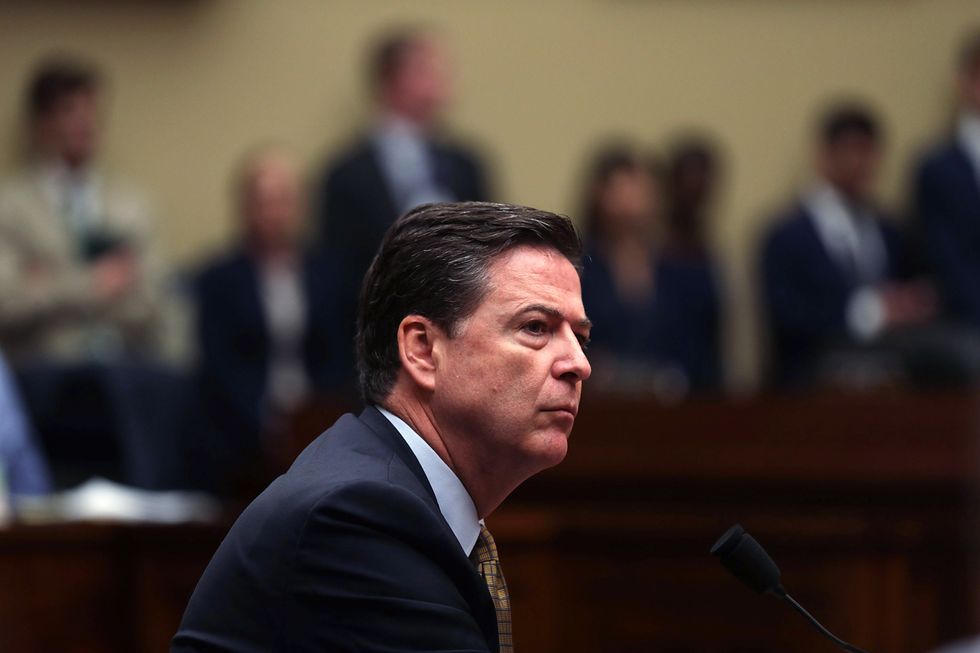
FBI Director James Comey (Alex Wong/Getty Images)

FBI Director James Comey was privately opposed to having the federal agency sign onto a statement accusing Russia of interfering in the U.S. presidential election, "a former FBI official" said, according to a new report.
The former bureau official, who spoke to CNBC Monday, said Comey was uncomfortable with launching the allegation so close to Election Day and ensured the FBI's name was not on the document the government published. The decision caused confusion within the agency, as some wondered why Comey took issue with naming Russia but had no problem disclosing the fact that the FBI was revisiting its probe into Hillary Clinton's email scandal.
Regardless, despite Comey's reservations about the statement, the Department of Homeland Security and The Office of the Director of National Intelligence issued a joint memo:
"The U.S. intelligence community is confident that the Russian Government directed the recent compromises of emails from U.S. persons and institutions, including from U.S. political organizations. ... These thefts and disclosures are intended to interfere with the U.S. election process."
A current FBI official declined to reveal what role Comey played in the finalized statement, which was released Oct. 7, but CNBC's source did say the bureau director agreed with the conclusion the intelligence leaders reached.
"A foreign power was trying to undermine the election. He believed it to be true, but was against putting it out before the election," the unnamed source said, adding Comey's position was, "if it is said, it shouldn't come from the FBI, which as you'll recall it did not.
But Comey took an entirely different approach in his handling of the new Clinton emails, which were unearthed during an FBI investigation into the sexting scandal surrounding disgraced former Rep. Anthony Weiner, the estranged husband of senior Clinton aide Huma Abedin.
He has been subsequently criticized by both Republicans and Democrats for making the announcement so close to the Nov. 8 election. However, one major difference between the Russia issue and the Clinton probe is the fact that, since the initial investigation into the Democratic presidential nominee's use of a private email server during her tenure at the State Department, Comey has kept Congress abreast of every development, unlike the statement on potential electoral interference.
The Clinton campaign attacked Comey during a Monday conference call for what they describe as a "double standard."
"During a House Judiciary Committee hearin, ... he was asked more than a dozen times about the Trump campaign’s ties to Russia," Clinton campaign manager Robby Mook said, according to the Huffington Post, noting Comey declined to do so each time. He called the move "nothing short of jaw-dropping."
Donald Trump's campaign, however, has capitalized on the decision. Kellyanne Conway, the Republican presidential nominee's campaign manager, told CNBC, "The right thing to do is whatever the FBI thinks." Trump, for his part, called Clinton a "terrible example" for American children in response to the latest revelations.
The FBI has indicated it is unlikely it will reach a conclusion on the matter before Election Day, despite fast-tracking the review.